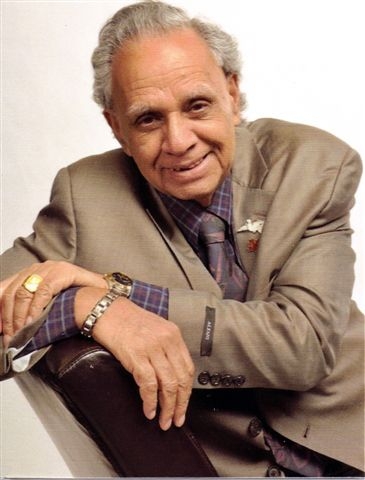Brigadier General Mohammad Reza Zahedi, a senior commander in the elite Quds Force of Iran’s Revolutionary Guard Corps (IRGC), and his deputy
Clash of Christian and Indian Cultures. By Dr. Stephen Gill

THE VIEW BELOW ANSWERS A QUESTION FROM PROFESSOR DR. AKSA RAO FROM INDIA, WHO ASKS IF CHRISTIAN CULTURE CLASH WITH PROVERBIAL INDIAN CULTURE. RECENTLY THERE ARE SEVERAL ATTACKS ON CHRISTIANS ON THE BASIS THAT CHRISTIAN CULTURE IS FOREIGN.
ANSWER:
Christian culture is based on unconditional love that has to do with compassion, charity, peace and other manifestations included in Christ’s Sermon on the Mount in chapters 5, 6 and 7 of the Gospel of Matthew. This sermon is directly related to the Almighty who is selfless love. In simple words, these are moral teachings about charity, humility, and compassion to convert the inner person. This sermon of Christ is the mother of the Christian culture. The gist of even Ten Commandments of Christians which came directly from God is the unconditional love.
The gist of Ten Commandments and the gist of Christ’s Sermon of the Mount are Indian thoughts in action. I find Christ in the Indian thought of live and let live. I find Christ also in Satya, Dharma, Shanti, Ahimsa and Prema, which are the five pillars of the Upnishads. Sai Baba, who died recently and is believed to have 78 million devotees in 98 countries, said as per Sanathana Sarthi of August 1992, p. 196, “My message is Prema (love). My teaching is Prema. My way of life is Prema. There is nothing more precious than love within human grasp.” In the issue of February 1993, he says that “the best way to serve God is to Love all and serve all (p. 48). What this Indian sage of today says is what Christ says according to all the four gospels.
National culture includes name of a person, food, clothes and rituals. These are the outward manifestations of a person’s country of origin. I have discussed this issue in the last two chapters of my novel The Chhattisgarh. I would like to quote a few lines from this novel:
In The Chhattisgarh, chapter “Reghu in Rajnandgaon” I write:
“The followers of Jesus can use any name. His followers in Africa use African names; his followers in Russia, use Russian names; his followers in Muslim nations, use Muslim names; and his followers in India, use mostly Indian names. Christianity is not based on names though some use Biblical names for identity.
“There is no such thing as a Christian name as there are Hindu names, such as Ram Lal, Sunil Kumar, and Madan Mohan or Muslim names, such as Abdullah, khan, Ali, Mohammed or Sikh names, which end with Singh. There are no Christian foods either or Christian language or clothes. The Christians who are born in Africa have African names and their language is their national or local language. So this is as well with the Christians born in Russia and Muslim nations. Christianity is the conversion of the interior, not the conversion of the exterior of an individual. The Ten Commandments, the base of Christianity, came directly from God and Christ kept them because they are the core of the unconditional love that Christ practiced. ..
I believe that like Christians in other parts of the world, Christians in India should keep their identity by keeping the structure, at least the outer structure of churches, in the manner of Indian architecture. There are no set Christian prayers or marriage ceremonies. Christians are not fussy about what to eat and what not to eat. A Christian can pray any time and in any way. It does not make any sense to complicate customs, which are already complicating life.
“Christianity is not based on clothing either. Women in India wear sari and other local dresses, and in Africa, Christians use their national dress. The Bible has been translated in most languages of the world and Christians are urged to read it in their own tongue. Christians in India read The Bible in their local languages, as Christians in other nations read it in their mother tongue. The God of Christians does not expect His followers to read His word in a particular script. Christians do not have a religious language, as the Hindus have Sanskrit, and the Muslims have Arabic. The language of their nation is their language. The salutation of Christians in India is namesty, the salutation of the most of the Hindus.
“Christians do not have restriction on their foods either. There is a large number of Christians in Canada who are vegetarians and against alcohol and cigarettes. Christian nations had been the first to ban cigarette-smoking. Christianity does not expect their males to grow beard and females to use veils or scarf. In Russia, they have Russian architecture and in Egypt they have Egyptian architecture. So in India, the places of worship should follow the Indian architecture. Inside of the church ought to be adjusted. There should not be any force, though. The hymns of Christians in India are in local languages. I believe that the form of worship and altars should be also in Indian ways.” (chap. 554- 556,
I would like to add that even the shape of the churches in India and the form of prayers should be as much as possible in Indian ways. Live and let live, an Indian thought that is the base of my novel The Coexistence, is one hundred per cent a Christian thought.
It is a noticeable fact that both Hindu and Christian cultures believe that peace can be attained through peaceful means. Both believe that peace is the key to open the door of the self to enter the stillness that is within to bath in the imperishable fragrance of the Almighty. Communication with the real self is possible in stillness and the real self is without the clothes of the thoughts. In this zone of stillness path-breaking poems are written—unimaginable music is composed-- and leading discoveries are made. Artists have experienced this stillness and know it well that this zone is without any logic, sentiment, feelings and worldly language. This zone of stillness is the source of miracles. For more, please refer to my presentations on YouTube, particularly under miracles.
It is also a noticeable fact that in both Indian and Christian cultures nature is the open book of the Almighty. The followers of the Bhakti Movement and Christ believe in a close and harmonious relationship with nature because Divinity exists in all the elements, including plants and animals. Both discover permanent patterns in the laws of nature that may be called Cosmic Power.
The followers of Christ hold that Christ came to save not only humans but also the entire planet and nature is a part of the planet. All the four Gospels are full of examples of Jesus from nature. Christ praised even ordinary flower such as the lily as per the Gospel of Matthew, chapter 6.
Years ago a scholar from a prestigious Canadian university wrote a doctoral dissertation where he proved that the birth of Christ has been prophesized in the Vedas. Several writers have proved in their own ways that Christ visited India before starting his ministry. Some Indian sages believe that Christ was born in India. There are also some books on this subject. I notice that main Indian philosophical thoughts and Christ’s thoughts are surprising identical
ANSWER:
Christian culture is based on unconditional love that has to do with compassion, charity, peace and other manifestations included in Christ’s Sermon on the Mount in chapters 5, 6 and 7 of the Gospel of Matthew. This sermon is directly related to the Almighty who is selfless love. In simple words, these are moral teachings about charity, humility, and compassion to convert the inner person. This sermon of Christ is the mother of the Christian culture. The gist of even Ten Commandments of Christians which came directly from God is the unconditional love.
The gist of Ten Commandments and the gist of Christ’s Sermon of the Mount are Indian thoughts in action. I find Christ in the Indian thought of live and let live. I find Christ also in Satya, Dharma, Shanti, Ahimsa and Prema, which are the five pillars of the Upnishads. Sai Baba, who died recently and is believed to have 78 million devotees in 98 countries, said as per Sanathana Sarthi of August 1992, p. 196, “My message is Prema (love). My teaching is Prema. My way of life is Prema. There is nothing more precious than love within human grasp.” In the issue of February 1993, he says that “the best way to serve God is to Love all and serve all (p. 48). What this Indian sage of today says is what Christ says according to all the four gospels.
National culture includes name of a person, food, clothes and rituals. These are the outward manifestations of a person’s country of origin. I have discussed this issue in the last two chapters of my novel The Chhattisgarh. I would like to quote a few lines from this novel:
In The Chhattisgarh, chapter “Reghu in Rajnandgaon” I write:
“The followers of Jesus can use any name. His followers in Africa use African names; his followers in Russia, use Russian names; his followers in Muslim nations, use Muslim names; and his followers in India, use mostly Indian names. Christianity is not based on names though some use Biblical names for identity.
“There is no such thing as a Christian name as there are Hindu names, such as Ram Lal, Sunil Kumar, and Madan Mohan or Muslim names, such as Abdullah, khan, Ali, Mohammed or Sikh names, which end with Singh. There are no Christian foods either or Christian language or clothes. The Christians who are born in Africa have African names and their language is their national or local language. So this is as well with the Christians born in Russia and Muslim nations. Christianity is the conversion of the interior, not the conversion of the exterior of an individual. The Ten Commandments, the base of Christianity, came directly from God and Christ kept them because they are the core of the unconditional love that Christ practiced. ..
I believe that like Christians in other parts of the world, Christians in India should keep their identity by keeping the structure, at least the outer structure of churches, in the manner of Indian architecture. There are no set Christian prayers or marriage ceremonies. Christians are not fussy about what to eat and what not to eat. A Christian can pray any time and in any way. It does not make any sense to complicate customs, which are already complicating life.
“Christianity is not based on clothing either. Women in India wear sari and other local dresses, and in Africa, Christians use their national dress. The Bible has been translated in most languages of the world and Christians are urged to read it in their own tongue. Christians in India read The Bible in their local languages, as Christians in other nations read it in their mother tongue. The God of Christians does not expect His followers to read His word in a particular script. Christians do not have a religious language, as the Hindus have Sanskrit, and the Muslims have Arabic. The language of their nation is their language. The salutation of Christians in India is namesty, the salutation of the most of the Hindus.
“Christians do not have restriction on their foods either. There is a large number of Christians in Canada who are vegetarians and against alcohol and cigarettes. Christian nations had been the first to ban cigarette-smoking. Christianity does not expect their males to grow beard and females to use veils or scarf. In Russia, they have Russian architecture and in Egypt they have Egyptian architecture. So in India, the places of worship should follow the Indian architecture. Inside of the church ought to be adjusted. There should not be any force, though. The hymns of Christians in India are in local languages. I believe that the form of worship and altars should be also in Indian ways.” (chap. 554- 556,
I would like to add that even the shape of the churches in India and the form of prayers should be as much as possible in Indian ways. Live and let live, an Indian thought that is the base of my novel The Coexistence, is one hundred per cent a Christian thought.
It is a noticeable fact that both Hindu and Christian cultures believe that peace can be attained through peaceful means. Both believe that peace is the key to open the door of the self to enter the stillness that is within to bath in the imperishable fragrance of the Almighty. Communication with the real self is possible in stillness and the real self is without the clothes of the thoughts. In this zone of stillness path-breaking poems are written—unimaginable music is composed-- and leading discoveries are made. Artists have experienced this stillness and know it well that this zone is without any logic, sentiment, feelings and worldly language. This zone of stillness is the source of miracles. For more, please refer to my presentations on YouTube, particularly under miracles.
It is also a noticeable fact that in both Indian and Christian cultures nature is the open book of the Almighty. The followers of the Bhakti Movement and Christ believe in a close and harmonious relationship with nature because Divinity exists in all the elements, including plants and animals. Both discover permanent patterns in the laws of nature that may be called Cosmic Power.
The followers of Christ hold that Christ came to save not only humans but also the entire planet and nature is a part of the planet. All the four Gospels are full of examples of Jesus from nature. Christ praised even ordinary flower such as the lily as per the Gospel of Matthew, chapter 6.
Years ago a scholar from a prestigious Canadian university wrote a doctoral dissertation where he proved that the birth of Christ has been prophesized in the Vedas. Several writers have proved in their own ways that Christ visited India before starting his ministry. Some Indian sages believe that Christ was born in India. There are also some books on this subject. I notice that main Indian philosophical thoughts and Christ’s thoughts are surprising identical
You May Also Like
Iran will have to remember that - the Iranian revolution of 1979 was not merely a Shia revolution but Islamic revolution (ii)- Being worshipers of
IF India gives-up “One China policy” then it will also impact the issues of Xinjiang, Hong Kong and Taiwan which all are claimed

"Trial of Pakistani Christian Nation" By Nazir S Bhatti
On demand of our readers, I have decided to release E-Book version of "Trial of Pakistani Christian Nation" on website of PCP which can also be viewed on website of Pakistan Christian Congress www.pakistanchristiancongress.org . You can read chapter wise by clicking tab on left handside of PDF format of E-Book.







